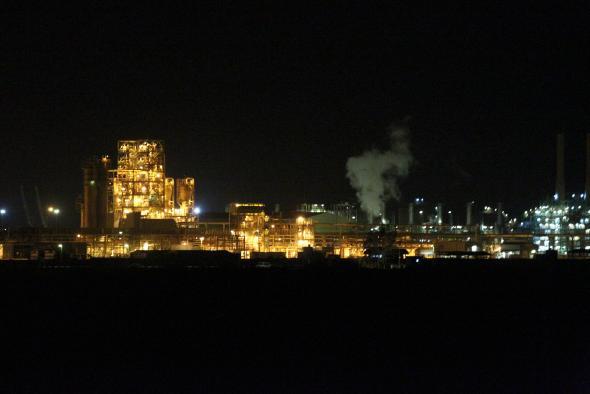Armed rebels take over a historically distinct region demanding greater autonomy. A fragile post-revolutionary government is unable to reassert control. An unpopular leader is forced from office and flees the country. This isn’t Ukraine, it’s Libya, and the potential for violence is far greater.
A couple of months ago, I wrote about Cyrenaica, the self-proclaimed semi-autonomous region in eastern Libya under the control of a militia led by Ibrahim Jadhran, the former commander of the petroleum protection unit. About 80 percent of Libya’s oil reserves—its crucial economic lifeblood—are located in the east, and for months the country has been unable to export oil from its eastern ports, which are under control of Cyrenaica. The rebels are demanding greater autonomy for the region, which was a political unit under King Idris, the leader deposed by Muammar Qaddafi in 1969.
Since Qaddafi’s overthrow in 2011, Libya has seen its oil exports shrink to 12.5 percent of production. The dispute over the ports is reportedly costing the country about $130 million a day.
Things came to a head on Saturday with the arrival of a mysterious North Korean-flagged tanker called Morning Glory at the rebel-controlled port of As-Sidra. Government forces claimed to have taken control of the ship, but then it slipped away into international waters yesterday carrying 234,000 barrels of crude, with the government in Tripoli claiming that “bad weather prevented the navy’s small vessels from following the huge ship out into the Mediterranean.”
Prime Minister Ali Zeidan was promptly voted out of parliament for the failure and has now fled to somewhere in Europe, where he lived in exile for many years before returning after Qaddafi’s ouster. Zeidan, who was kidnapped by gunmen in downtown Tripoli last year, likely had reason to fear for his safety.
Armed forces loyal to Tripoli have now launched an attack on the eastern rebels. With no effective army or police forces, the government’s efforts to rein in the country’s rival militias have been frustrated in the past.
Outright civil war has been a threat in Libya since the revolution, but at the moment, the more likely scenario seems to be an uneasy and sporadically violent stasis as Jadhran and other militia leaders continue to operate with impunity in various parts of the country.
Then there’s the question of where Morning Glory, which is reportedly owned by a Saudi company and changed ownership in recent weeks, is headed. As of Monday, the oil had not been sold to anyone. One trader told the Financial Times, “This is the sort of cargo that the majority of people would not touch with a barge pole. It is toxic cargo,” but clearly there’s enough of a demand that the ships owners felt it was worth the risk to put in a stop at As-Sidra. (Another ship attempting to dock was forced to turn back after coming under fire from the Libyan navy in January.)
At a time when Jadhran’s support seemed to be waning under a months-long oil embargo, Cyrenaica may have found itself a patron.
